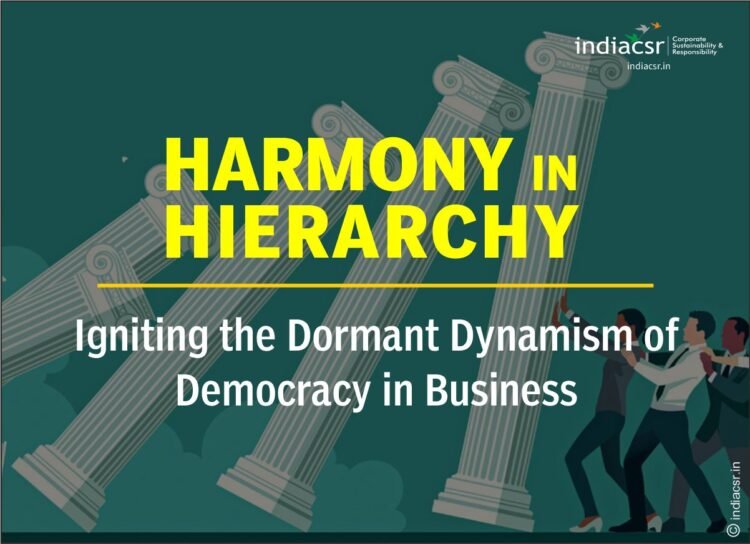In the traditional corporate structure, decision-making power is often concentrated at the top. The vision, mission, and strategies are defined by a few individuals who then disseminate the direction to the rest of the company. While this hierarchical method has its merits, it arguably underutilises one of the most powerful resources a company has: its people. This article discusses the unexplored potential of integrating the concept of true democracy into the business world, a concept where every voice matters, and each opinion is taken into account.
The Cornerstones of Democracy: Freedom, Equality, and Pluralism
Democracy, at its heart, is about freedom, equality, and pluralism. These cornerstones highlight the importance of every individual’s voice in shaping the collective. It’s about creating a culture where individuals feel valued, seen, and heard, fostering a sense of belonging. When these principles are injected into the business world, they can serve to empower individuals, promoting creativity, innovation, and an increased sense of ownership and dedication to the company’s mission.
Example
These cornerstones can create a culture where individuals feel valued. Google’s policy of allowing employees to spend 20% of their time on personal projects is a great example. This policy, which promotes freedom, equality, and pluralism, has led to innovations like Gmail and AdSense, proving the value of empowering all voices in a company.
Diversifying Decisions: How Democracy Can Enhance Business
Diverse decision-making offers a broader perspective and consequently, better decisions. By utilising democratic methods in business, companies can benefit from the rich tapestry of experiences, skills, and ideas that their employees bring to the table. An inclusive democratic business model can boost innovation, promote effective problem-solving, and even help identify business risks and opportunities that a narrow leadership team might overlook.
Example
Nokia’s downfall can serve as a cautionary tale against monoculture in decision-making. Once a dominant player in the mobile phone market, it was dethroned due to a lack of innovative products, something many attribute to a lack of diverse perspectives at the top. On the other hand, companies like Apple have thrived by encouraging a wide array of perspectives, leading to groundbreaking products like the iPhone and iPad.
Democratic Leadership: A Power Multiplier
The role of leadership in a democratic business model does not diminish, but transforms. Leaders act as facilitators, fostering a culture of transparency and collaboration. This democratic leadership style encourages individual empowerment, critical thinking, and collective responsibility. When every individual in an organization feels they can contribute their best and be recognised for it, the business reaps the benefits of an engaged, productive, and fulfilled workforce.
Example
At Semco Partners, CEO Ricardo Semler implemented a democratic leadership model where workers choose their leaders and salaries, and make major decisions collectively. The result was a drastic increase in productivity, a decrease in turnover, and a more engaged workforce.
Implementing Business Democracy: A Practical Approach
To harness the potential of democratic principles in business, it’s important to strike a balance between collective decision-making and maintaining a strategic direction. Companies might consider mechanisms like internal voting systems for major decisions, participative management styles, and regular town-hall meetings for open discussions. Training and development programs that foster democratic values, such as listening, negotiation, and consensus-building, can also be instrumental in this transition.
Example
Buurtzorg, a Dutch home-care organization, is a shining example of democracy in action. With a team-based, decentralized structure, the organization has no managers, and teams make decisions collectively. The result is high-quality care and impressive employee satisfaction.
The Call for a Democratic Revolution in Business
The power of true democracy in business lies in its capacity to leverage the collective wisdom of the people. The ability to gather multiple perspectives can foster innovation, improve decision-making, and boost employee morale. In the wake of the rapidly changing global business landscape, embracing a democratic ethos might not just be a choice, but a necessity for businesses to thrive. The call, therefore, is to shift from an underutilisation to an embracing of this power – the power of true democracy in business.























